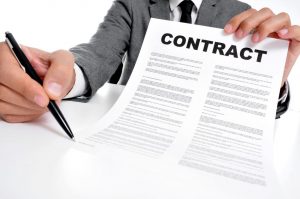What is a Force Majeure clause and how can it help me during a Pandemic?
The Coronavirus pandemic is affecting many commercial contracts because the parties are unable to perform their obligations under the contract, often for reasons outside of their control.
For example, a shortage of workers either in the UK or further afield due to actual illness, or self-isolation, or due to redundancies because of business closures, will be interrupting business activity. Parties might not be paid because of unexpected insolvencies. Supply chains into the UK, for example from China, are being interrupted because of Chinese ports being affected.
When contractual issues arise, parties should check their contractual rights and obligations to find out what is expected of them. If there is a force majeure clause, that might help to clarify where you stand. Read it carefully because the precise wording is important.
A force majeure clause typically excuses one or both parties from performing the contract following the occurrence of events, acts or circumstances which are beyond the reasonable control of the defaulting party. The underlying idea is that when events occur which are outside a party’s control, that party is not obliged to perform, or may suspend, all or part of its obligations, and will not be liable for its failure to perform them. As the term “force majeure” has no recognised meaning in English Law, the contract must define it for the clause to have any effect.
If there is no force majeure clause, parties might be able to rely on the frustration of the contract. The circumstances in which frustration occurs are quite limited, and it only applies where performing the contract has become impossible.
Of course, even if there is a force majeure clause, there can be disputes about when a party is entitled to rely on it, and whether the circumstances fall within the scope of the clause. Sometimes clauses will list or expressly exclude certain events, such as strikes, or third-party default. Sometimes the clause will state that a party cannot rely on the clause in relation to events which the other could have foreseen and planned for. Economic changes which affect the profitability of a contract are not force majeure events. Pandemics and civil emergencies may well be included in the list of force majeure events.
If you think you are covered by a force majeure clause, it is for you to prove that the event or circumstances was the cause of your non-performance. This partly depends on the nature of the event and the nature of the contract, but also on the interpretation of the clause itself, so consider the wording carefully. For example, a clause that requires the event to “prevent” performance of the contract has quite limited application because performance must be impossible, not just difficult or unprofitable.
If there were several causes that led a party to default in performing contractual obligations, force majeure cannot apply. It must be the only effective cause. Further, the defaulting party must prove that it was otherwise ready and willing to perform and that the only thing preventing that was the force majeure circumstances. In addition, the defaulting party has an obligation to use reasonable endeavours to mitigate the effect of the force majeure event.
The wording of the force majeure clause should also be checked to see whether the contractual obligations are ended, or simply suspended. Usually, they will be suspended for as long as the event or circumstances continue. There might be a requirement to serve a force majeure notice by the party wanting to rely on the clause, so check to see whether you are required to do that. In some circumstances, it might not make commercial sense for the contract to start up again after a suspension, and so look out for an option for the parties to serve a notice terminating the contract after a certain period of time, without liability.
For advice on contractual disputes and contractual obligations affected by Coronavirus, contact Sarah Coates-Madden on 0114 303 2300 or email [email protected]







